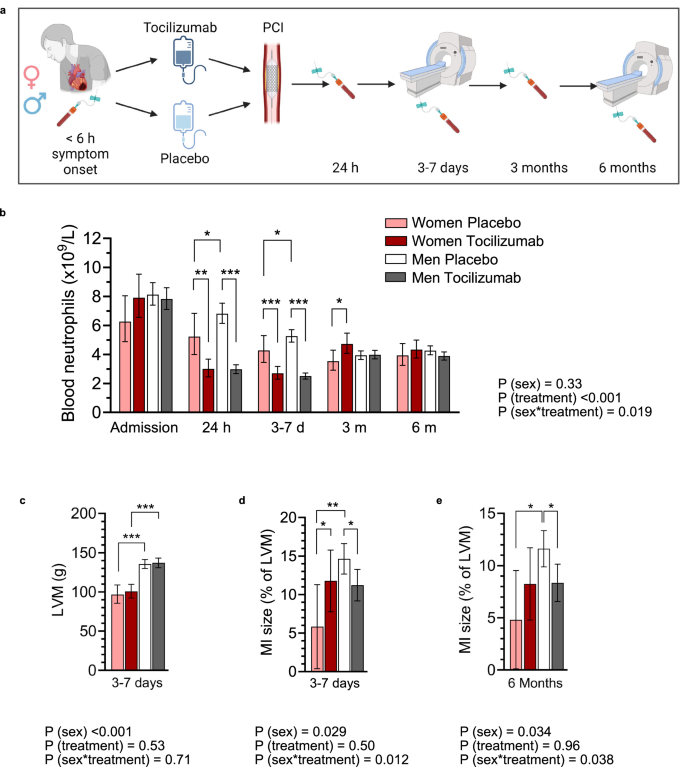Testosterone worsens heart attack damage, study finds

Testosterone significantly worsens heart attack outcomes by triggering a surge in white blood cells potentially explaining why men often face more severe cardiac damage than women, according to a groundbreaking study from Sweden.
Researchers at the University of Gothenburg found that testosterone accelerates the release of neutrophils—inflammatory white blood cells—from bone marrow following a heart attack, intensifying damage to heart muscle. The findings, published in Nature Communications, could reshape treatment approaches for both male and female heart attack patients.
“Testosterone plays a clear role in making inflammation worse following a heart attack,” said lead researcher Åsa Tivesten, professor of medicine at Sahlgrenska Academy and senior physician at Sahlgrenska University Hospital.
The research team observed higher neutrophil counts in male mice compared to females during the critical days following a heart attack. These findings were complemented by human clinical trial data showing that anti-inflammatory treatment with tocilizumab was notably more effective in men than women.
“If these sex differences are overlooked, treatments may be less effective, especially for women, who are often underrepresented in studies,” Tivesten said.
The discovery opens new avenues for sex-specific cardiac treatments and highlights the need for more gender-conscious medical research. It also raises questions about current heart attack treatment protocols and their effectiveness across genders.
The study’s implications could be particularly significant for developing targeted therapies that consider hormonal differences between patients, potentially leading to more personalized treatment approaches for heart attack victims.



